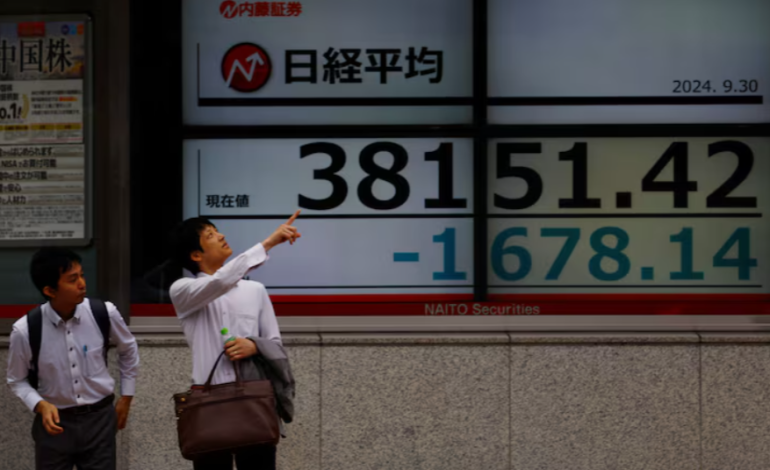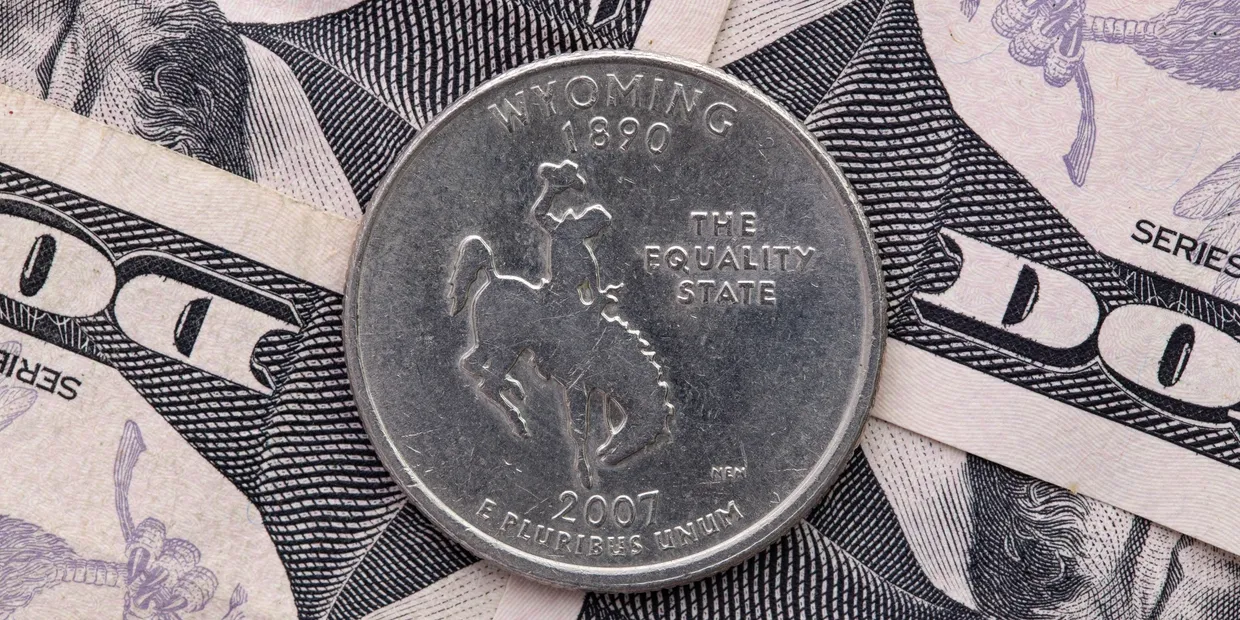Stocks Steady as Oil Prices Rise Amid Middle East Tensions

Stocks remained stable on Wednesday, with safe-haven assets like government bonds and the US dollar gaining traction as investors navigated escalating hostilities in the Middle East, which contributed to a nearly 3% increase in oil prices.
Europe’s benchmark STOXX index slipped 0.1%, while MSCI’s broadest index of Asia-Pacific shares rose 1.38%. These movements occurred despite concerns over a potential wider conflict following Iran’s missile strike on Israel and Israel’s military actions in Lebanon. The dollar traded near a three-week high against the euro, buoyed by a robust US job market that supports expectations for a smaller interest rate cut from the Federal Reserve in November.
US S&P 500 futures fell 0.4%, following a 0.9% decline in the cash index overnight. Meanwhile, mainland Chinese markets were closed for the Golden Week holiday.
Chris Weston, head of research at Pepperstone, noted that geopolitical events typically have a greater impact on market volatility than economic indicators or corporate earnings. He emphasized the fluidity of the situation, suggesting that changes in rhetoric from either Israel or Iran could significantly influence market sentiment.
Iran declared that its missile strikes on Israel were complete, barring further provocations, although Israel and the United States have promised retaliation. Brent crude futures rose 2.71% to $75.55 per barrel, while US WTI futures climbed 2.91% to $71.86 per barrel, building on gains from the previous day.
Analysts indicated that while an Israeli strike on Iranian oil fields seems unlikely, targeted strikes on critical military facilities are more probable. The cost of insuring Israel’s sovereign debt against default reached a near 12-year high, with five-year credit default swaps increasing by 10 basis points to 160bps.
In broader market movements, gold prices eased by 0.4% to $2,653.12 per ounce, following a previous jump close to record highs. Benchmark 10-year Treasury yields rose about four basis points to 3.7467%, reflecting a shift towards the safety of government bonds. The dollar index remained steady at 101.22 after reaching a peak of 101.39.
European currency dynamics showed little change, with the euro trading at $1.1072 after a previous drop. Data indicating that eurozone inflation fell below the European Central Bank’s target has led to speculation about potential rate cuts.
In the US, job openings unexpectedly increased in August, hinting at a resilient economy, while a dock strike on the East and Gulf coasts raises concerns about economic disruption and inflation.
Despite the geopolitical uncertainties, energy and defense stocks saw gains, while airline shares fell as investors became more cautious. The Dow Jones Industrial Average decreased by 173.18 points, or 0.41%, to 42,156.97, and the Nasdaq Composite dropped by 278.81 points, or 1.53%, to 17,910.36.
Reuters and the Times of Israel contributed to this report.








